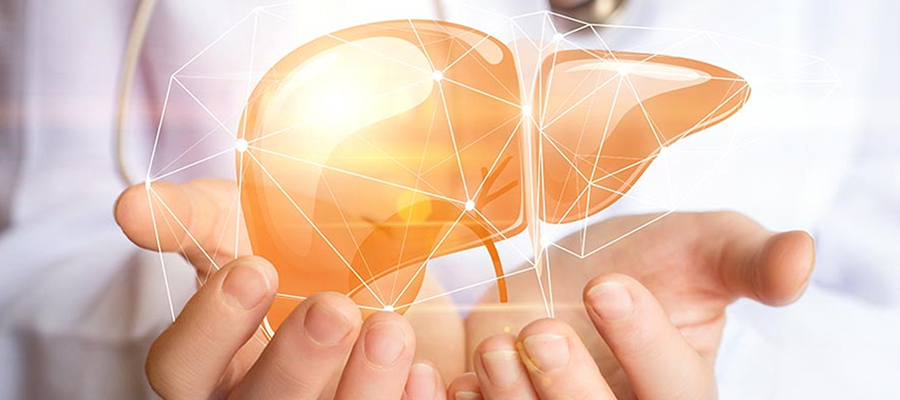
Estimated reading time: 4 minutes and 6 seconds
Liver Diseases
Comprehensive Diagnosis and Treatment for Liver Diseases at Aktif International Hospitals
Liver diseases encompass a wide range of conditions that affect the liver, a vital organ responsible for various functions, including detoxification, metabolism, and bile production. At Aktif International Hospitals, we offer comprehensive diagnosis and treatment for liver diseases, provided by experienced hepatologists and multidisciplinary healthcare teams. Our goal is to provide personalized care and effective treatment options to improve the health and well-being of our patients with liver diseases.
Frequently Asked Questions
What are liver diseases, and what causes them?
Liver diseases refer to conditions that affect the liver’s structure or function, leading to impaired liver health and potential complications. Liver diseases can be caused by various factors, including:
- Viral infections: Hepatitis viruses, such as hepatitis B, hepatitis C, and hepatitis A, can cause inflammation of the liver and lead to liver disease.
- Alcohol consumption: Excessive alcohol consumption can damage the liver and lead to conditions such as alcoholic liver disease, fatty liver disease, and cirrhosis.
- Nonalcoholic fatty liver disease (NAFLD): NAFLD is a condition characterized by the accumulation of fat in the liver, often associated with obesity, diabetes, and metabolic syndrome.
- Autoimmune conditions: Autoimmune liver diseases, such as autoimmune hepatitis, primary biliary cholangitis, and primary sclerosing cholangitis, occur when the immune system mistakenly attacks the liver.
- Genetic disorders: Inherited liver disorders, such as hemochromatosis, Wilson’s disease, and alpha-1 antitrypsin deficiency, can affect liver function and health.
What are the signs and symptoms of liver diseases?
The signs and symptoms of liver diseases may vary depending on the underlying cause and severity of the condition. Common signs and symptoms may include:
- Jaundice: Yellowing of the skin and eyes due to the accumulation of bilirubin in the body.
- Fatigue: Persistent tiredness, weakness, or lack of energy.
- Abdominal pain: Discomfort or pain in the upper right abdomen, often associated with liver inflammation or enlargement.
- Swelling: Swelling or fluid retention in the abdomen (ascites) or lower extremities (edema).
- Nausea and vomiting: Digestive symptoms such as nausea, vomiting, or loss of appetite.
- Changes in urine or stool: Changes in the color of urine (dark urine) or stool (pale stool) may indicate liver dysfunction.
It’s essential to seek medical attention if you experience persistent or worsening symptoms suggestive of liver disease.
How are liver diseases diagnosed?
The diagnosis of liver diseases typically involves a combination of medical history, physical examination, laboratory tests, imaging studies, and liver biopsy as needed. Laboratory tests such as liver function tests, viral hepatitis serology, imaging studies (ultrasound, computed tomography, magnetic resonance imaging), and liver biopsy may be performed to evaluate liver health and function, identify underlying causes, and guide treatment decisions.
What are the treatment options for liver diseases at Aktif International Hospitals?
The treatment for liver diseases depends on the underlying cause, severity of the condition, and individual patient factors. Treatment options may include:
- Lifestyle modifications: Making dietary changes, maintaining a healthy weight, avoiding alcohol consumption, and exercising regularly can help manage liver diseases such as NAFLD and alcoholic liver disease.
- Medications: Antiviral medications, immunosuppressants, corticosteroids, and other medications may be prescribed to manage viral hepatitis, autoimmune liver diseases, or other liver conditions.
- Interventional procedures: Interventional radiology procedures such as transarterial chemoembolization (TACE) or radiofrequency ablation (RFA) may be performed to treat liver tumors or lesions.
- Liver transplantation: In cases of end-stage liver disease or liver failure, liver transplantation may be considered as a treatment option to replace the diseased liver with a healthy donor liver.
Our team of hepatologists, transplant surgeons, nurses, and support staff will work together to develop a personalized treatment plan tailored to each patient’s specific needs and circumstances.
Why choose Aktif International Hospitals for liver disease treatment?
Aktif International Hospitals is dedicated to providing compassionate, expert care for patients with liver diseases. Our hepatology team has extensive experience in diagnosing and treating a wide range of liver conditions, from viral hepatitis and fatty liver disease to autoimmune liver diseases and liver cancer. We are committed to delivering personalized, evidence-based treatment to achieve the best possible outcomes for our patients.
Experience Comprehensive Liver Disease Care at Aktif International Hospitals
If you or a loved one is living with a liver disease, trust Aktif International Hospitals to provide comprehensive diagnosis, treatment, and ongoing support. Schedule a consultation with our experienced hepatology team today to learn more about our liver disease services and how we can help you improve your liver health and quality of life with confidence and peace of mind.
Author: Ertuğrul Karğı


 TR
TR